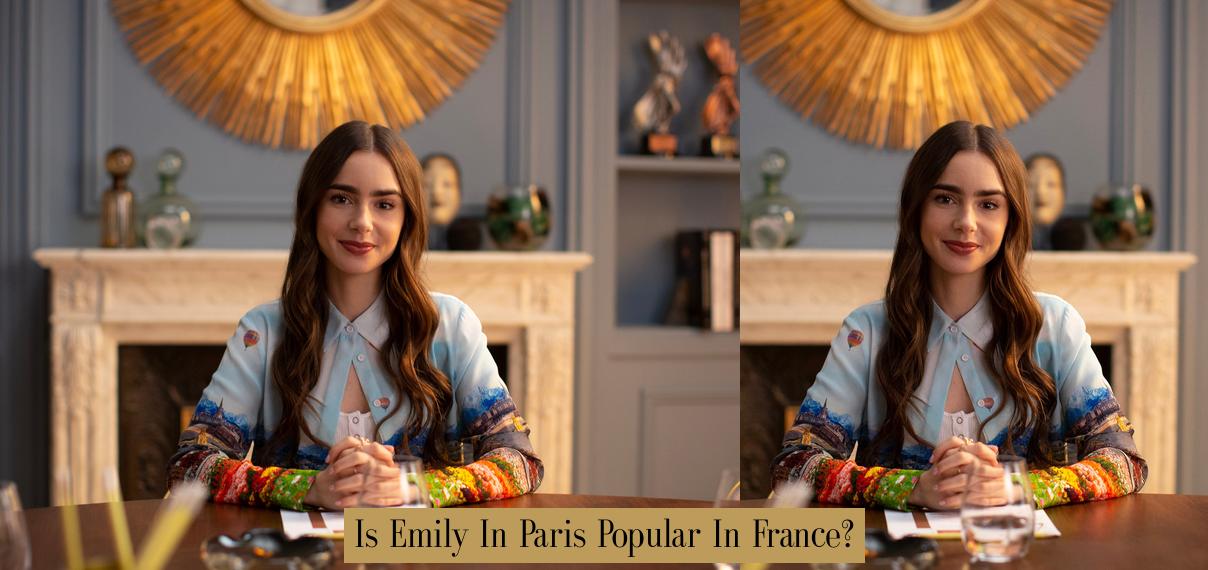Is Emily in Paris Popular in France? (Spoiler Alert: It’s Complicated)
Let’s be honest, you’re probably here because you’ve either binged “Emily in Paris” and are now wondering if the French are secretly obsessed with the show, or you’re a French person who’s been bombarded with questions about this American import.
The answer, my friend, is complicated.
Emily in Paris: A Love-Hate Relationship
“Emily in Paris” has been a cultural phenomenon, drawing in millions of viewers worldwide. But in France, it’s a different story.
The show has been both praised and criticized for its portrayal of Parisian life.
The Good:
- The Show’s Appeal: “Emily in Paris” has a certain charm. It’s lighthearted, romantic, and visually stunning. It’s the perfect escape for those who dream of Parisian life, complete with croissants, chic fashion, and romantic encounters. And let’s be honest, who doesn’t love a good dose of escapism?
- Tourism Boost: The show has become a major tourist draw. Fans are flocking to Paris to visit Emily’s favorite spots, from the Jardin du Palais Royale to the iconic Eiffel Tower. The show has even inspired a “Emily in Paris” tour, which takes visitors to locations featured in the show. This has been a boon for the Parisian economy.
- A “Petit Plaisir”: As a French friend once told me, “It’s a ‘petit plaisir.’ A little guilty pleasure we all enjoy.” The show, despite its flaws, offers a lighthearted and entertaining escape from the daily grind. It’s not meant to be a realistic portrayal of life in Paris, but rather a fun and fantastical take on it.
The Bad:
- Stereotypes Galore: “Emily in Paris” has been criticized for its portrayal of French people. The show relies heavily on stereotypes, often presenting the French as rude, arrogant, and obsessed with love and fashion. This portrayal has angered some French viewers, who feel that the show is perpetuating inaccurate and outdated stereotypes.
- Emily’s Clichéd Character: Emily herself is a walking cliché. She’s naive, bubbly, and completely unaware of French culture. She constantly makes blunders, speaks French atrociously, and seems to struggle with even the simplest of cultural norms. It’s not exactly a flattering portrayal of an American abroad.
- Real Parisians Aren’t So Thrilled: Many Parisians have taken to social media to express their displeasure with the show. They’ve criticized its unrealistic portrayal of Parisian life, its lack of cultural sensitivity, and its overall shallowness.
The Ugly:
- The Show’s Impact on Tourism: While the show has brought in tourists, it has also led to some negative consequences. Some Parisians complain that the show has created an influx of tourists who are only interested in taking selfies at the locations featured in the show. This has led to overcrowding and a sense that the city is losing its authenticity.
The Verdict: Is “Emily in Paris” Popular in France?
The answer is: It’s complicated. The show has certainly gained popularity in France, but it has also sparked controversy. Many French viewers enjoy the show for its lighthearted escapism and its depiction of a glamorous and exciting Parisian life. However, many others criticize the show for its unrealistic portrayal of French culture and its perpetuation of harmful stereotypes.
The Real Paris: Beyond the Glitter
“Emily in Paris” may offer a glimpse into a romanticized version of Paris, but it’s important to remember that the real Paris is much more complex and nuanced. It’s a city that’s filled with history, culture, and diversity. It’s also a city that’s constantly evolving and changing.
How to Experience the Real Paris:
If you’re planning a trip to Paris, I encourage you to go beyond the tourist traps and explore the city’s hidden gems. Talk to locals, try new foods, and immerse yourself in the city’s rich culture. You’ll soon discover that Paris is a city that has something to offer everyone, regardless of their interests.
So, is “Emily in Paris” popular in France? The answer is a resounding maybe. The show has certainly garnered attention, but it has also divided the public. It’s a show that’s best enjoyed with a healthy dose of skepticism—and perhaps a side of real Parisian cuisine.
